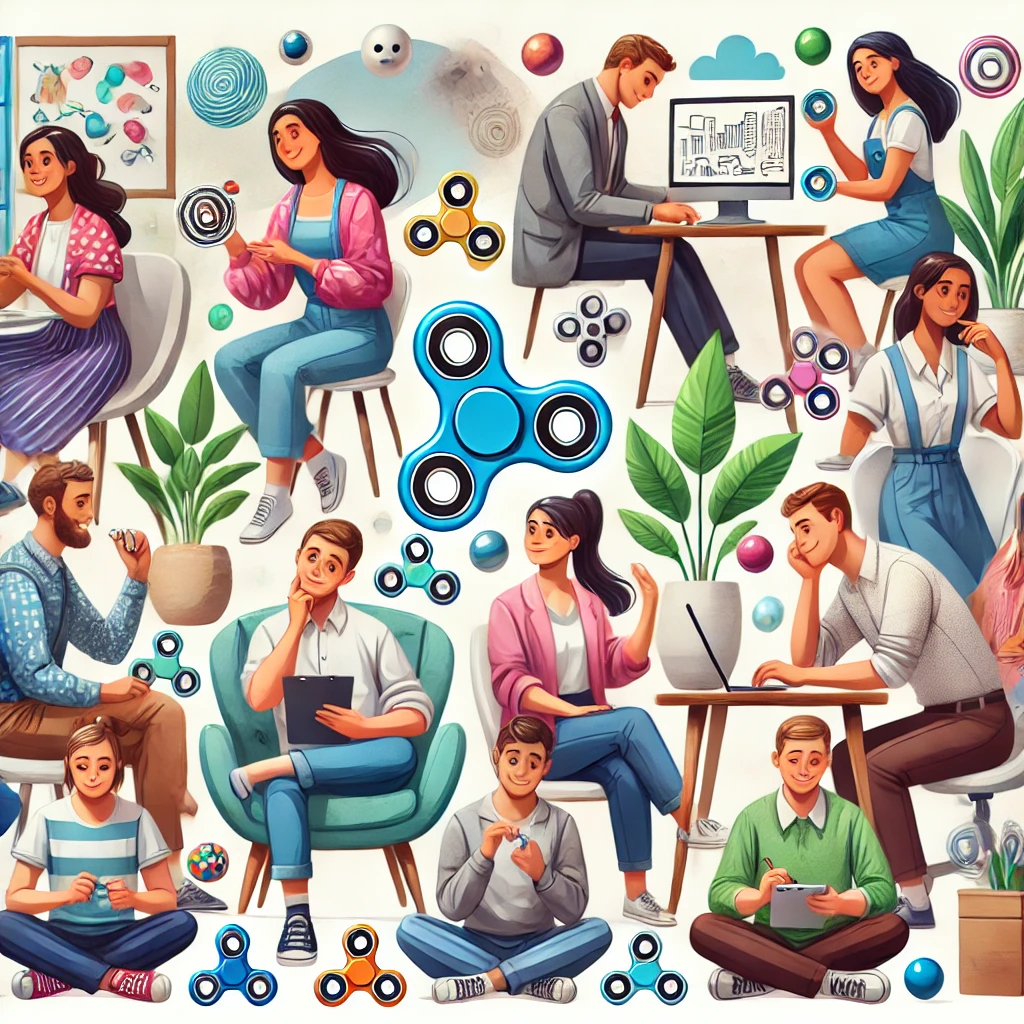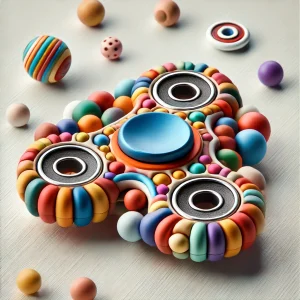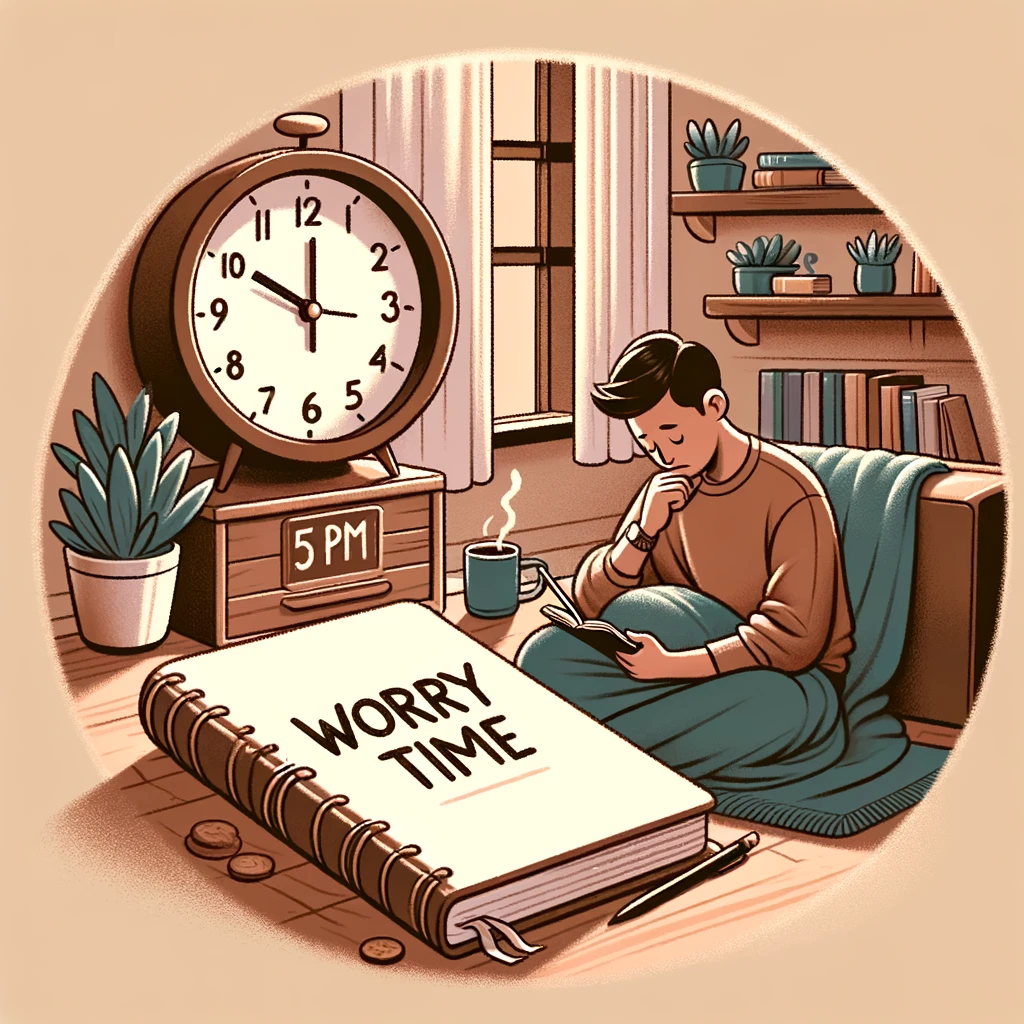
The Relationship Between Fidgeting and ADHD: Benefits, Tools, and Tips
The Relationship Between Fidgeting and ADHD: Understanding the Connection
Does Fidgeting Help Adhd People?
Fidgeting and ADHD Fact Sheet (1)
🌟 Fidgeting, often seen as a distraction, can actually be a key to unlocking the brain's full potential, especially for individuals with ADHD. By understanding the science and benefits behind fidgeting, we can better appreciate its role in enhancing focus and cognitive performance. Embracing fidgeting as a natural and beneficial behavior can empower neurodivergent individuals to thrive.
What Exactly is Fidgeting?
🖋️ Ever caught yourself tapping your foot during a meeting or doodling in the margins of your notes? These seemingly idle activities, known as fidgeting, are actually your brain's way of staying sharp. Fidgeting includes non-goal-directed, repetitive, or patterned movements that we often engage in subconsciously. It’s a particularly common habit among individuals with ADHD and sensory processing differences. Recognizing fidgeting as a valid and helpful tool can validate the experiences of those who fidget regularly.
The Types of Fidgeting
Extrinsic Fidgeting
✍️ This involves playing with external objects, such as spinning a pen or squeezing a stress ball. It's like giving your hands a job to keep your mind free for higher-order thinking. This form of fidgeting can be particularly beneficial for individuals with ADHD, providing a tactile outlet for excess energy.
Intrinsic Fidgeting
🦵 This includes body movements like tapping your fingers or bouncing your leg. Think of it as your body’s natural rhythm trying to sync with your brain’s needs. Intrinsic fidgeting is a natural and adaptive response that helps neurodivergent individuals manage their attention and sensory input.
Intrinsic fidgeting can be considered a form of stimming. Stimming, short for self-stimulatory behavior, involves repetitive movements or sounds that help individuals, particularly those who are neurodivergent, regulate their sensory input and emotions.
Why Adults with ADHD Fidget
A Natural Focus Booster
🧩 Fidgeting can actually help maintain focus, especially during monotonous or lengthy tasks. People with ADHD might fidget more during tasks requiring sustained attention, which paradoxically helps them perform better. By embracing fidgeting, we can reframe it as a strength rather than a distraction.
Chemical Boosts
💊 Engaging in physical activity, including fidgeting, increases levels of dopamine and norepinephrine, chemicals that are crucial for concentration and attention. This effect mirrors what ADHD medications aim to achieve. Understanding this can help individuals with ADHD and their supporters recognize the value of fidgeting in managing symptoms.
Symptom Severity
📊 Research shows a direct link between the severity of ADHD symptoms and the frequency of fidgeting. More severe symptoms often mean more fidgeting, which serves as a self-regulation tool. This highlights the adaptive nature of fidgeting for managing attention and sensory needs.
Fidgeting in Kids: More Than Just Play
Staying Focused
📚 For children with ADHD, fidgeting can be a lifeline for staying attentive during challenging tasks. It’s a natural way to boost dopamine and norepinephrine levels. Recognizing this can help educators and parents support children’s learning needs more effectively.
Sensory-Seeking Needs
🌈 Kids with sensory-seeking behaviors, particularly those on the autism spectrum and adhd, often benefit greatly from fidget toys. These tools provide the sensory input they crave, helping them to focus better. By providing these tools, we can create a more inclusive and supportive environment for neurodivergent children.
The Sensory Science Behind Fidgeting
Regulating Sensory Input
🎧 Fidgeting helps those with sensory processing difficulties manage their sensory environment. It’s like turning the volume down on sensory overload. Embracing fidgeting can lead to better self-regulation and overall well-being.
Parent reports
👨👩👧👦 Parents of autistic children frequently report that fidget toys significantly help their children, compared to parents of neurotypical kids who might not see the same level of benefit. This reinforces the importance of understanding and supporting the unique needs of neurodivergent individuals.
The Adult Fidgeting
Anxiety Buster
💍 Some studies suggest that fidgeting can reduce anxiety levels in adults. For instance, using the CONQUERing ring showed a moderate decrease in anxiety compared to non-fidgeting alternatives. Recognizing this can help adults find effective strategies for managing anxiety.
Customization is Key
🎨 The success of fidgeting as a coping mechanism can depend heavily on the individual’s preferences. What works wonders for one person might not for another. Encouraging customization allows neurodivergent individuals to find what best supports their unique needs.
Fidgeting and Cognitive Performance: The Great Debate
Mixed Results
📖 The research on fidgeting’s impact on cognitive performance is mixed. Some studies show it helps with focus and information retention, while others suggest it might be a distraction. This highlights the importance of personalized approaches to fidgeting.
Cognitive Control
🧠 Fidgeting can help regulate arousal levels, which can improve focus and cognitive control. This makes it a handy tool during tasks requiring sustained attention. Acknowledging this can help validate the experiences of those who rely on fidgeting for self-regulation.
Practical Tips for Effective Fidgeting
Checklist
- ✅ Smart Multitasking: Engage in secondary activities that don’t compete with your primary task, such as listening to instrumental music while reading.
- ✅ Customize: Find fidgeting techniques and tools that work best for you, recognizing that what works for one person might not work for another.
- ✅ Use Fidget Toys: These provide outlet for fidgeting, helpful in settings like the workplace or classroom.
- ✅ Recognize Benefits: Understand that fidgeting can help with focus, attention, and self-regulation, particularly for individuals with ADHD.
- ✅ Explore Options: Experiment with different types of fidgeting—both extrinsic (playing with objects) and intrinsic (body movements)—to see what best supports your needs.
- ✅ Monitor Impact: Pay attention to how fidgeting affects your cognitive performance and adjust your strategies accordingly.
The Magic of Fidget Toys
A Handy Tool

🧸 Fidget toys provide a socially acceptable outlet for fidgeting, making it easier to manage this behavior in settings like the workplace or classroom. They can be an essential tool for supporting neurodivergent individuals.
Where Do We Go From Here?
Need for More Research
🔬 There’s still a lot to learn about how fidgeting affects people of different ages, particularly comparing adults and children with ADHD. More research could unlock new insights into this behavior and further validate its benefits.
Wrap Up on Regulating through Fidgeting
💪 Fidgeting is more than just a quirky habit; it’s a powerful tool for self-regulation and focus, especially for those with ADHD and sensory processing differences. By embracing intentional and discreet fidgeting techniques, we can enhance our cognitive performance and manage attention more effectively in various settings. Recognizing and supporting the unique ways neurodivergent individuals self-regulate can lead to more inclusive and effective environments for everyone.
✨ So next time you catch yourself tapping your foot or doodling during a meeting, remember: you’re not just fidgeting—you’re fine-tuning your brain’s ability to stay sharp and focused.
Links





